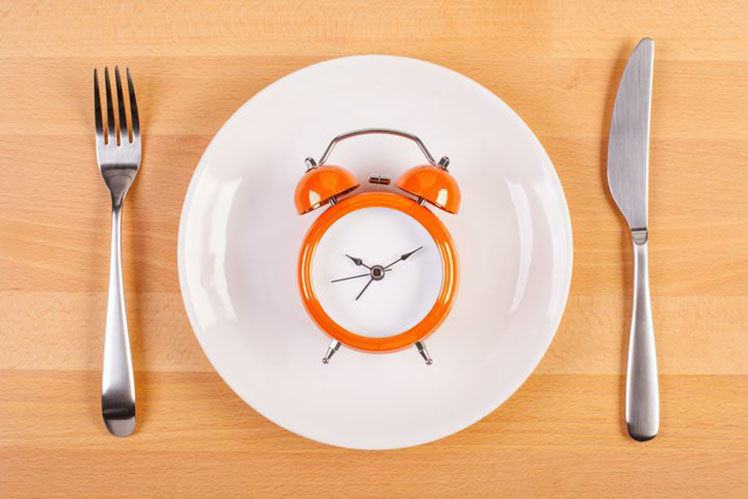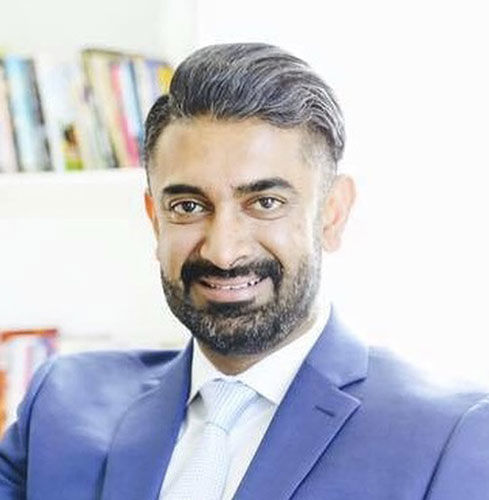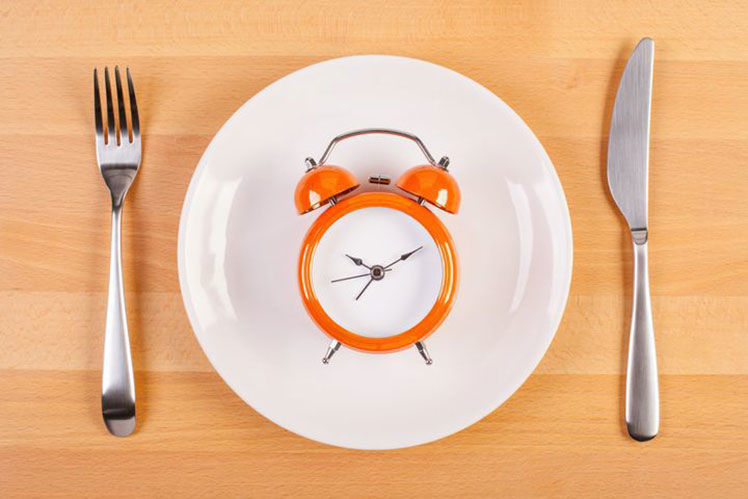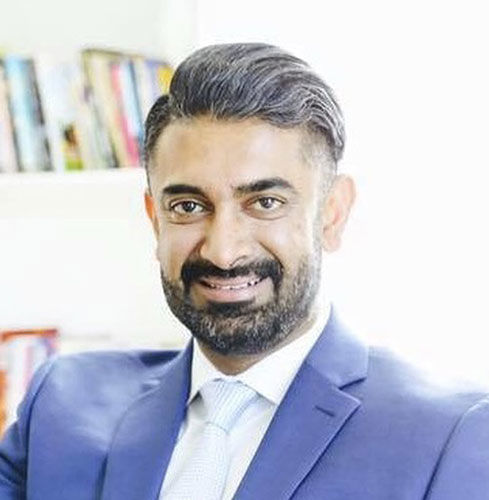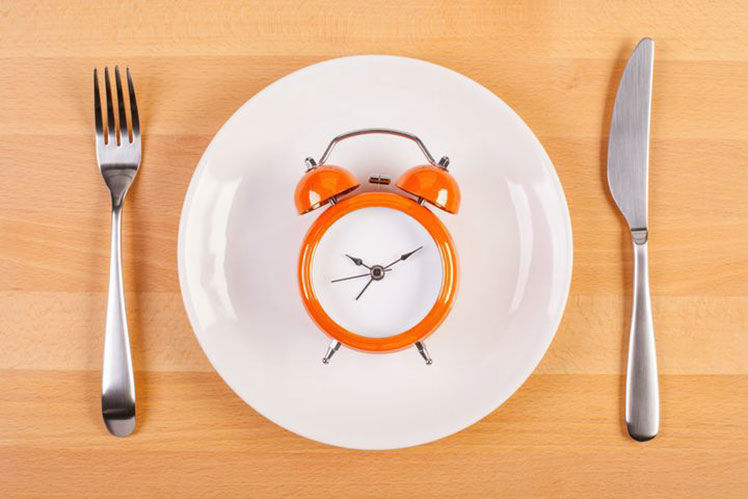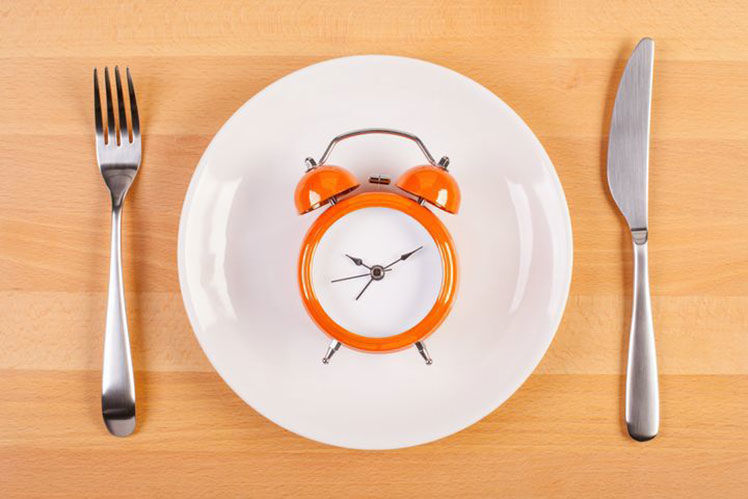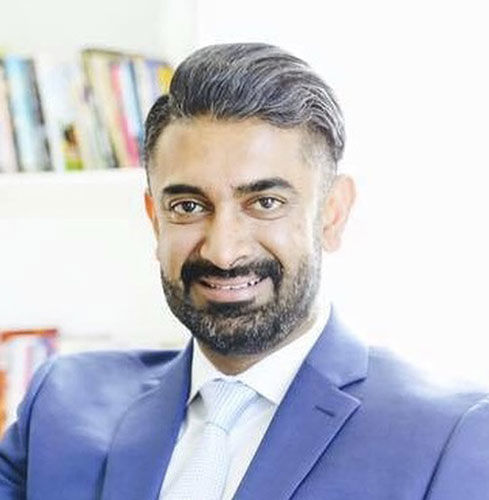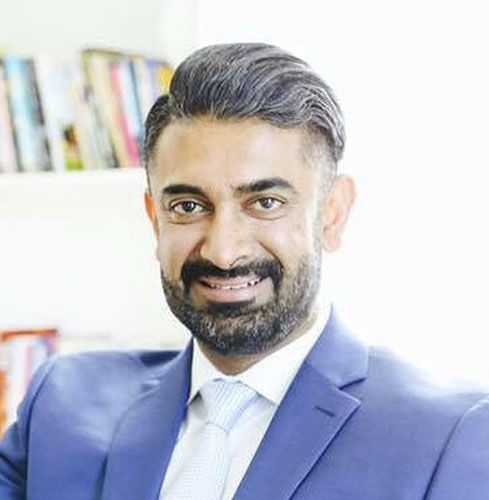Anna Spoerle is feeling good.
The Benton, Wis., resident has been practicing intermittent fasting for more than two years with the help of nurse practitioner Stephanie Grutz, of Balance Integrative Health & Wellness in Dubuque.
Spoerle, 34, suffers from multiple sclerosis. It’s one of the reasons she started researching a way to restore her energy levels and feel better overall.
“It is a big reason why I looked into different ways to feel my best,” she said.
The practice, which involves narrowing your eating window to a certain number of hours per day, has a lot of people intrigued. In the U.S., it became a fad among employees in Silicon Valley, and soon, the buzz word was “intermittent fasting.”
But, Grutz said, you shouldn’t let buzz words make you think this is something new.
“There are deep cultural and historic timelines that indicate people have been doing this for a long time,” she said.
Bobby Koneru, a Dubuque oncologist, agreed.
“Before the advent of farming, we weren’t eating three meals a day,” he said. “When we were hunter-gatherers, we might eat, then not eat for 24 hours. Multiple meals a day is a very small time period in our evolution. It’s been a major disruption to our health in a lot of ways.”
Andrew Nish, medical director of the John Stoddard Cancer Center in Des Moines, has an interest in integrative medicine, a field he has continued to study even after retiring from his practice as a radiologist in 2018.
“Combining intermittent fasting with a healthy diet is one of the best things you can do to increase longevity,” he said.
Intermittent fasting, also known as time-restricting feeding, is a practice that allows the gut to rest and heal. Medical professionals agree that it has innumerable health benefits.
“There are a lot of animal models that show the benefits, and biomarkers give us chemical evidence that this works,” Nish said.
“It can lower cholesterol and high blood pressure, and prevent diseases such as diabetes,” Grutz said.
Koneru said studies have shown that the practice can increase life expectancy.
“If you look at people who live for long periods of time, there are things about them that are different. They are getting chronic disease 20 years later than we are. They’re living to 100 when most of us are living to 80,” he said. “If you look at why they’re living to be 100, it comes down to inflammatory pathways — specifically something called mTor and this process called autophagy.”
Autophagy is the body’s natural way of getting rid of damaged cells and replacing them with new ones. It is the process of self-healing within the body. Regulating that process is one of the more than 800 jobs that the mTor enzyme performs in the human body.
“Whatever we can do to activate this process of authophagy seems to be something that may promote longevity. Fasting is one of the most powerful tools we have,” Koneru said.
Allowing the body to rest and heal metabolically has benefits that could prevent future disease.
“Every time you take in food, your insulin levels go up,” Koneru said. “If you have high insulin levels chronically, that leads to a lot of bad things. One of them is diabetes, which is one of the most common chronic diseases in the world.”
Working with Grutz, Spoerle has noticed a marked improvement in her health through regular check-ups and lab work.
“I have more energy, better sleep, lower cholesterol and lower weight,” she said. “I can also tell when I am working that I have better concentration.”
Grutz said intermittent fasting provides a flexible way for anyone to begin taking tangible steps towards improving one’s health. Weight loss might be a by-product of the practice, but that is not the main goal.
“There are no rules or regulations,” she said. “You don’t want to come off a fast and eat a greasy cheeseburger, but for the most part, intermittent fasting is helpful.”
Nish said that when you eat is just as important as what you eat.
“Our diurnal clock is how our bodies synchronize with the sleep/wake cycle,” he said. “It’s not good to eat when our bodies think we should be sleeping. The most deadly thing we do to our bodies is midnight snacking.”
Spoerle fasts from 6:30 p.m. to 10:30 a.m. each day.
“Overall, this eating style is pretty risk-free and flexible,” she said.
Starting a lifestyle change can be the hardest part, so Grutz recommended easing into the intermittent fasting process slowly.
“Doing a couple of days a week is the best way to begin,” she said.
Nish said the time-restricted feeding style, as opposed to fasting for 24 or 48 hours or doing an alternate day fast, is probably the easiest way for most people to begin.
“We don’t really know what the magic number is as far as the eating window,” he said. “But we think ten hours of eating is optimal.”
Nish emphasized that combining time-restricted feeding with a healthy diet is important.
“This style of eating doesn’t give you carte blanche to eat anything and everything,” he said. “Nuts, whole foods, fruits and vegetables, no processed foods and minimal sugar are best. You can’t fast your way out of a bad diet. This kind of fasting is a small component of a healthy lifestyle.”
Before beginning any diet or lifestyle change program, it is recommended that you consult a medical professional.
Michelle London writes for the Telegraph Herald.


